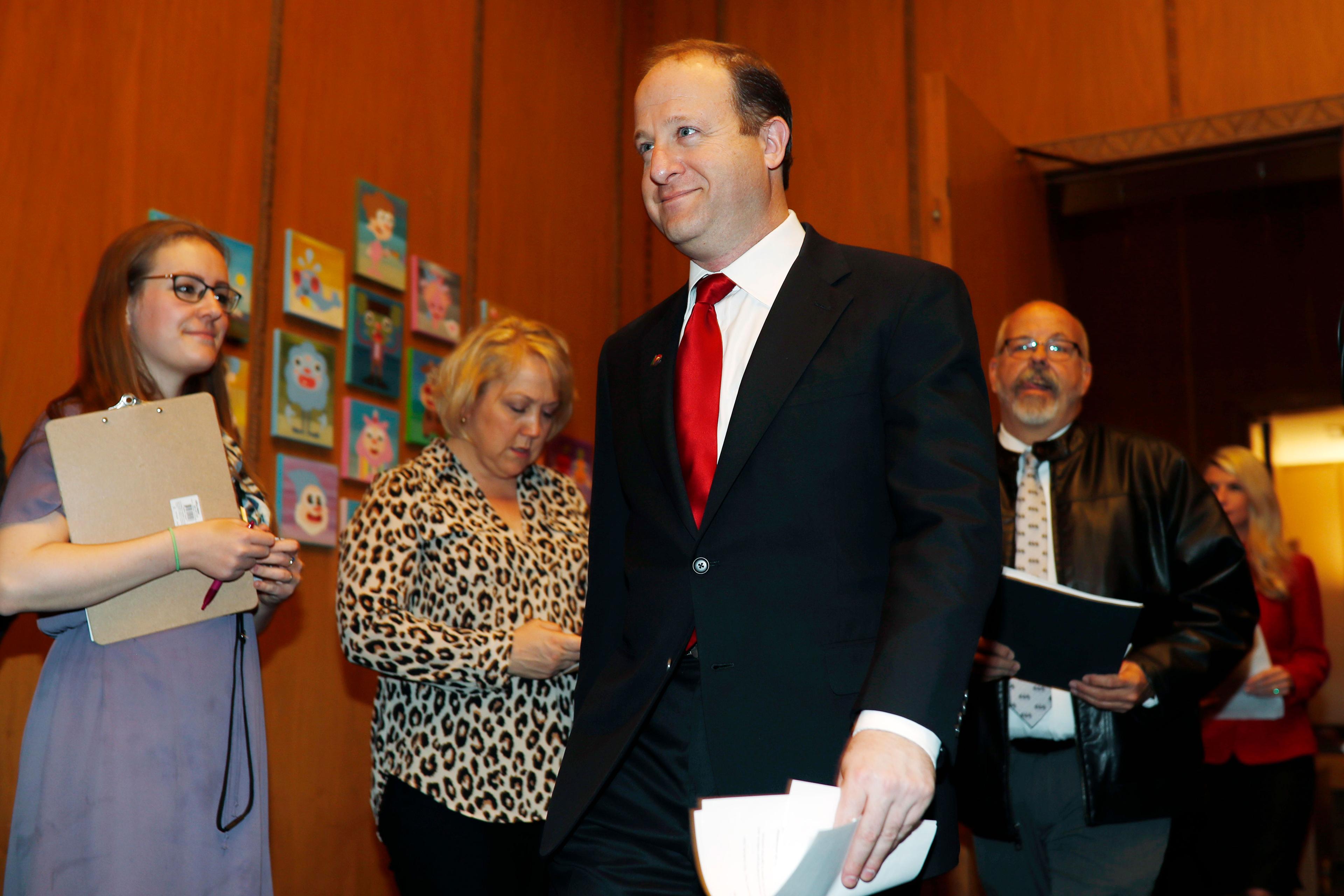

Gov. Jared Polis hasn’t been in the governor’s office a full year yet, but how he handled his first legislative session shows a lot about his type of leadership style.
Most notably, Polis’ approach is a major departure from his predecessor, fellow Democrat John Hickenlooper. The former governor turned presidential candidate was known inside the capitol for a relatively hands-off approach with the legislature, saying he didn’t want to micromanage.
Not so with Polis.
“Sometimes that was more challenging because, obviously, it’s easier if the governor is just letting us, you know, do what we want to do,” said Democratic Rep. Dafna Michaelson Jenet. “But Polis really wants to be engaged and there were some good things that came out of it.”
Michaelson Jenet said Polis worked with her on her signature bill to get more counselors in schools. He also vetoed a bill of hers that would have licensed genetic counselors. Polis thought that would hamper innovation in the new industry.
She said he didn’t raise any objections to the measure during the session and because he was so involved in so many other major bills she assumed that meant he was fine with it. The Commerce City representative was surprised and frustrated when the veto came.
“But I’ve learned. I’ve learned what his position is and I know now that I have to work closely with his office if I’m going to, work on licensure.”
Polis served in Congress for 10 years before he moved to the governor’s office and Colorado lawmakers say he has a keen interest in policy and vast knowledge of the bills moving through the state capitol. He appears to read most or all of them.
“There’s a hundred legislators with at least five ideas each often more,” Polis said. “And so we often have to react about how, how those ideas, how they affect other laws, how much they cost, how realistic they are in terms of us implementing them. So we were always engaged and providing feedback.”
Speaker of the House KC Becker said she was in touch with Polis three or four times each week and his staff daily during the session. He also tried to set up one-on-one meetings with every state lawmaker. In the end, he vetoed five bills and signed 454.
The governor’s impact may have been felt more with the bills that never reached his desk.
“We didn’t get everything we wanted, and he didn’t get everything he wanted,” Becker said.
During the session, there was tension at times between Democratic lawmakers who control the House and Senate, and the governor. Polis wasn’t able to push through a bill introduced late in the session to increase taxes on vaping products. And when he first unveiled his request to fund full-day kindergarten, Democrats on the joint budget committee wanted to make sure the funding was there before they committed to it.
Democratic Sen. Dominic Moreno, who sits on the budget committee, likes how much Polis weighs in on bills — but it is a balancing act.
“You have to provide the legislature the space to do what we do because we are at the end of the day, we are the policymakers. We put together these bills and then we, obviously we always want the executive’s opinion on that, but their primary role is execution.”
His advice to Polis and his team? Think carefully about when and how to work with the legislature.
Too early in the process could be seen as controlling. Too late could upend an agreement already in place and lead to hard feelings and tougher negotiations. Moreno also said Democrats are still figuring out how to talk about issues.
“If someone is making their position too clear in the public, then it’s hard to kind of move them from that position or to negotiate with them on certain aspects of the policy,” he said. “That piece of it is certainly something that we’ll get used to, that we’ll continue to learn how to work with one another.”
While Democrats don’t necessarily need GOP votes to pass legislation, Republican Senate Minority Leader Chris Holbert said he regularly met with Polis during the session. He sees differences compared to Hickenlooper, and not just his management style.
“Gov. Polis is more liberal, more progressive than Gov. Hickenlooper,” Holbert said. “That’s frustrating being in the minority and not having either chamber, he gets to do whatever the Democrats in the legislature agree that they’ll do. So, it’s certainly not something that I’m excited about, but certainly, the governor’s been respectful in his discussions with us.”
This first legislative session was something of a honeymoon for Polis. While he didn’t get everything he wanted, Democrats passed most of his top priorities.
“The trick is for the governor, is you don’t just get to say snap your fingers and it’s done,” said Kevin Bommer, who has represented the Colorado Municipal League at the capitol for 19 years.
“You’ve got to work with the general assembly to do it. But the flip side is the governor’s got a card to play. The governor has the last vote on any legislation.”








